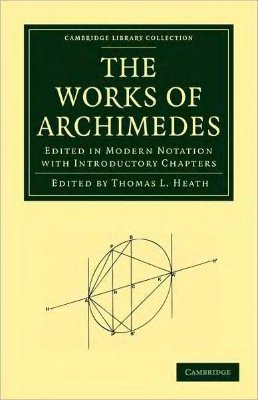Cambridge University Press, 2009. - 520 Pages.
Archimedes lived in the third century BC, and died in the siege of Syracuse. Together with Euclid and Apollonius, he was one of the three great mathematicians of the ancient world, credited with astonishing breadth of thought and brilliance of insight. His practical inventions included the water-screw for irrigation, catapults and grappling devices for military defence on land and sea, compound pulley systems for moving large masses, and a model for explaining solar eclipses. According to Plutarch however, Archimedes viewed his mechanical inventions merely as 'diversions of geometry at play'. His principal focus lay in mathematics, where his achievements in geometry, arithmetic and mechanics included work on spheres, cylinders and floating objects. This classic 1897 text celebrates Archimedes' achievements. Part 1 places Archimedes in his historical context and presents his mathematical methods and discoveries, while Part 2 contains translations of his complete known writings.
Archimedes lived in the third century BC, and died in the siege of Syracuse. Together with Euclid and Apollonius, he was one of the three great mathematicians of the ancient world, credited with astonishing breadth of thought and brilliance of insight. His practical inventions included the water-screw for irrigation, catapults and grappling devices for military defence on land and sea, compound pulley systems for moving large masses, and a model for explaining solar eclipses. According to Plutarch however, Archimedes viewed his mechanical inventions merely as 'diversions of geometry at play'. His principal focus lay in mathematics, where his achievements in geometry, arithmetic and mechanics included work on spheres, cylinders and floating objects. This classic 1897 text celebrates Archimedes' achievements. Part 1 places Archimedes in his historical context and presents his mathematical methods and discoveries, while Part 2 contains translations of his complete known writings.

